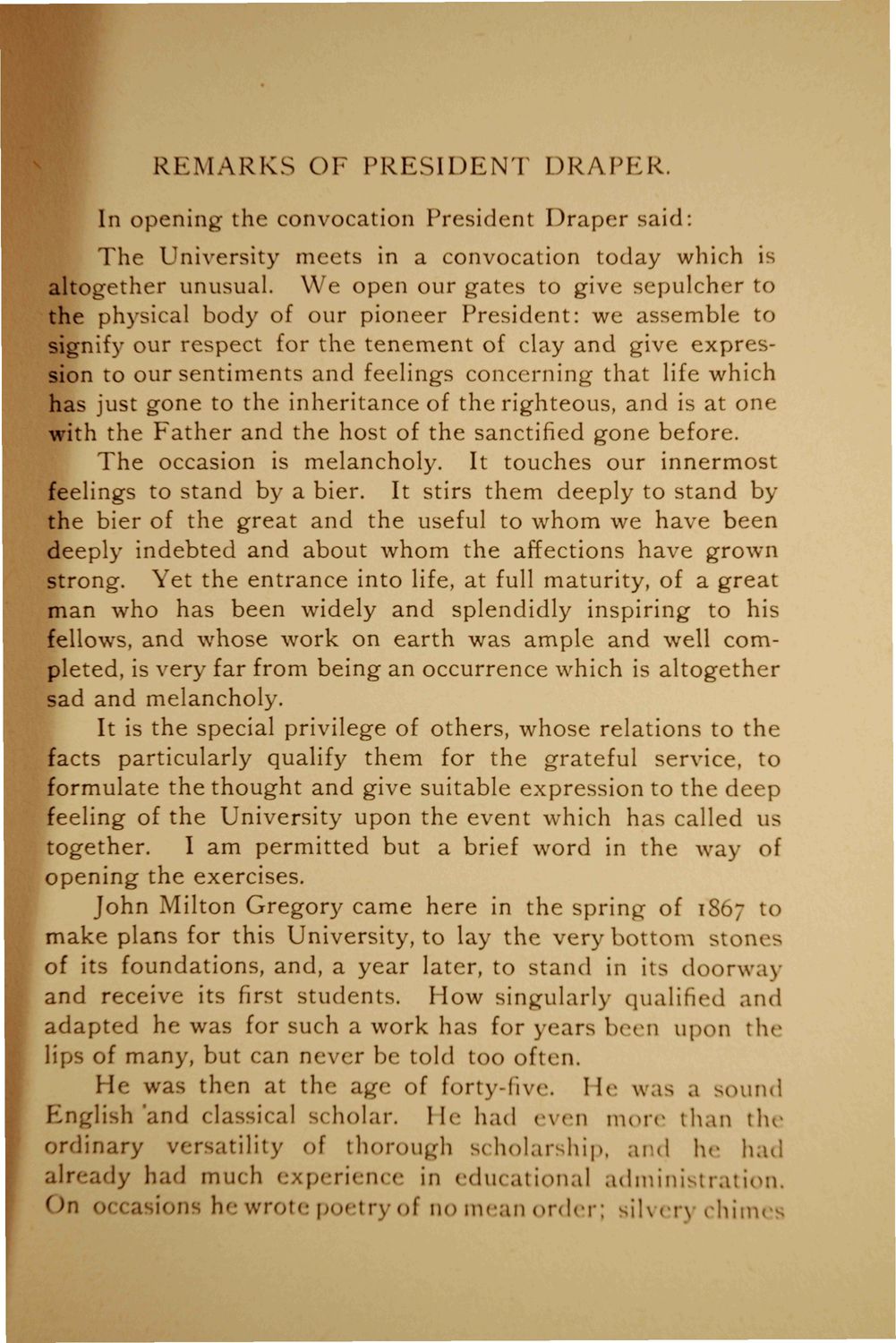Caption: Book - John Milton Gregory Memorial Convocation (1898)
This is a reduced-resolution page image for fast online browsing.

EXTRACTED TEXT FROM PAGE:
REMARKS 01 PRESIDENT DRAPER. In opening the convocation President D r a p e r said: T h e University meets in a convocation today which is lltogether unusual. W e open our gates to give sepulcher to the physical body of our pioneer President: we assemble to signify our respect for the t e n e m e n t of clay and give expression to our sentiments and feelings concerning that life which has just gone to the inheritance of the righteous, and is at one with the F a t h e r and the host of the sanctified gone before. T h e occasion is melancholy. It touches our innermost feelings to stand by a bier. It stirs them deeply to stand by the bier of the great and the useful to whom we h a v e been deeply indebted and about whom the affections h a v e grown strong. Yet the e n t r a n c e into life, at full maturity, of a g r e a t man who has been widely and splendidly inspiring to his fellows, and whose work on e a r t h was a m p l e and well completed, is very far from being an occurrence which is a l t o g e t h e r sad and melancholy. It is the special privilege of others, whose relations to the facts particularly qualify t h e m for the grateful service, to formulate the t h o u g h t and give suitable expression to the d e e p feeling of the University upon the event which has called us together. I am permitted but a brief word in t h e way of o p e n i n g the exercises. John Milton G r e g o r y came here in the spring of 1807 to m a k e plans for this University, to lay t h e v e r y b o t t o m stones of its foundations, and, a y e a r later, to stand in its doorway and rec ive its first students. H o w singularly qualified and adapt d he was for such a work has for years been upon the lips of many, but can nev< r be told too often. He was then at the age of forty-five. E n g l i s h ' a n d classical scholar. He was a sound administration, H e had even more than tin ordinary v < On tility of thorough scholarship, and he had silven rhitrv already had much experience in educational cc si ns he wrote poetry of no mean ord<
|